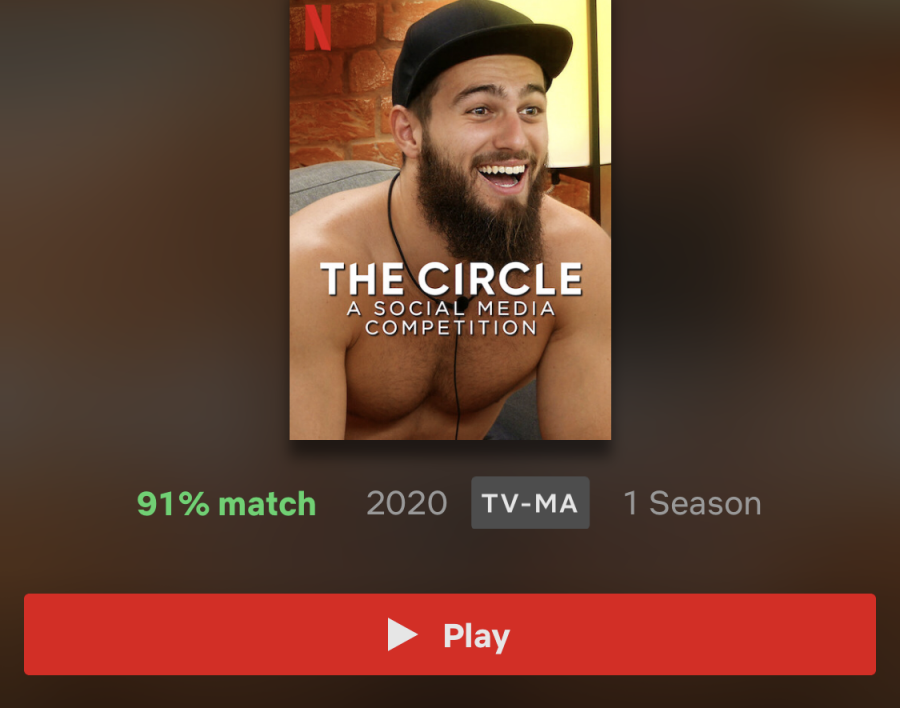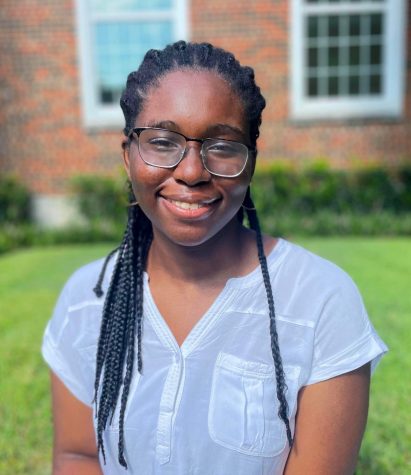Mild spoilers ahead for minor details, but no reveals of winners, losers or twists.
I didn’t expect much of “The Circle,” considering the volume of terrible originals Netflix pumped out over the last few years, but I was pleasantly surprised by the show.
The premise was intriguing, so I clicked on the first episode expecting an hour of mediocre television, after which I would never return.
I was absolutely wrong. I was so wrong that it’s difficult to state in words just how wrong I was. I was hooked. When the credits started rolling on the first episode, you better believe I smashed that “next episode” button.
“The Circle” is a social media-based reality TV show that Netflix released at the beginning of this year. It is an American remake of a successful show from the United Kingdom of the same name, and Netflix is also making versions in France and Brazil.
The show starts with eight contestants living in an apartment building. But instead of shows like “Big Brother,” where cameras watch them cohabitate, the contestants are locked in their rooms and are only able to interact through a voice-activated social media platform called “The Circle.” Through the Circle, participants update their profiles, communicate with their fellow players and play mini games.
There’s something about “The Circle” that makes it addictive. In fact, several things. First of all, the characters. Obviously, they’re real people, so it might seem strange to call them characters, but just as scripted shows are character-driven, so is “The Circle.”
There’s something about “The Circle” that makes it addictive.
Each person has their own beliefs and philosophy about social media and their own strategy to win. They each evoke feelings from the watcher, causing them to dislike a particular strategy or love someone’s personality. With eight different players, there is more than enough personality to go around.
The eight beginning players are Antonio, Chris, Mercedeze, Shubham, Joey, Alana, Sammie and Rebecca. I was annoyed by Alana, who claimed she was being judged for being a model and not her personality. I found her personality could use some judgment, too. I rooted for Chris because of his Dallas roots. I loved Shubham, who was a big ball of sunshine in general. My investment in their characters kept me watching.
However, at that moment at the end of episode one, I think the biggest factor was where it cut off. “The Circle” has mastered the art of the cliffhanger.
Every so often, players are required to rate each other by putting each of their competitors in numerical order from most to least favorite. Their ratings are averaged to create a leaderboard. The two most popular players are dubbed the “influencers,” who decide which player must leave the show. To win, players have to be voted most popular in the final rankings.
At the end of the first episode, influencers had been voted in, and they had just decided who to block from the show. Most of the time, the blocked player then gets to meet a player face-to-face. Right when the blocked player had to choose who to visit face-to-face, the episode cut off.
“The Circle” had me hooked. The show’s commitment to keeping the game fresh and interesting was what kept me watching until the end. By introducing new players, new games and new twists to the ranking process, the show never got boring.
Though the introduction of new players kept “The Circle” fresh, the way they were introduced was problematic. Contestants who were in the game from the start were able to solidify relationships early, and therefore, had an unfair advantage. Influencers faced with a tough decision ultimately opted to block the people they didn’t know: the newest players.
There seemed to be two main strategies. One was aggressive authenticity and relationship building, and the other was catfishing and building a perfect persona. To catfish is to use someone else’s pictures to fool people online, and it’s a term used often on the show.
Joey, Shubham and Chris played the authenticity angle and put a lot of stock into their relationships. They put their strategy into consideration, of course, but the bulk of their decisions came from the heart. This raises an interesting question: is authenticity for the sake of social media true authenticity?
The name of the game is to perform your personality enough to get people to not block you, so even if you’re displaying a true personality, it’s a distortion of real life. This carries over to real social media, too. People are never as fun or effusive as they seem online.
People are never as fun or effusive as they seem online.
On this same note, I found the relationship building a little overdone. Two people would private message for maybe five minutes over superficial things, and they would both think that they knew each other better. I don’t think that any of the friendships on the show were fake per se, just that they were a lot more strategic than they’ll admit.
Bill, who was a new player introduced apart from the starting eight, made this observation in the show by calling everyone “fake.” He caught some deserved flak for this, but he had a little bit of a point. None of them really knew or loved each other. They just pretended they did to seem like nice people and get ahead strategically.
The catfish often justified their crime as trying to make a lofty point about social media or society in general, but it’s not convincing to me. All of them catfished first and foremost to win.
The only one who made a point about judgment based on physical appearance from the beginning was Sean, who was introduced about half-way through. Sean admitted she catfished to win, but her secondary purpose was to make a point.
Seaburn claimed after the competition ended that he catfished the other players to call attention to the stigmatization of emotion in men. Rebecca, the name he catfished under, was criticized in the show for being too emotional, and he saw the opportunity to send a message and ran with it. He also tried to stem backlash by saying that he was expressing his real personality with fake pictures, but I think he’s flat-out lying by saying this.
Rebecca’s sensitive nature is a core part of her personality on the show, and both of his claims rely on that sensitivity being genuine. However, the moments where Rebecca was emotional were completely fabricated. Seaburn used those fake feelings to try to garner sympathy and manipulate other players. He wasn’t making any point about masculinity, and he wasn’t being genuine whatsoever personality-wise.
The most honest catfish besides Sean was Alex, because even though his attempts to flirt as Adam were laughably ineffective and crude, he didn’t claim to be doing something that he wasn’t. He chose to catfish as a “hot” person because he thought it would get him ahead, and he freely admitted it.
Overall, I highly recommend “The Circle.” It’s a sometimes cringy, sometimes funny and always engaging show. It’s still reality TV. If you loathe the format, it’s not for you, but it’s a fun watch. It didn’t leave me with the feeling that I had just wasted hours watching garbage, which is what usually happens when I watch reality TV.
“The Circle” lets the viewers make their own judgments about its cast of characters, and it provokes some interesting thoughts about how we use social media without sounding preachy. No matter how you feel, you’ll feel something, and that’s the beauty of “The Circle.”




